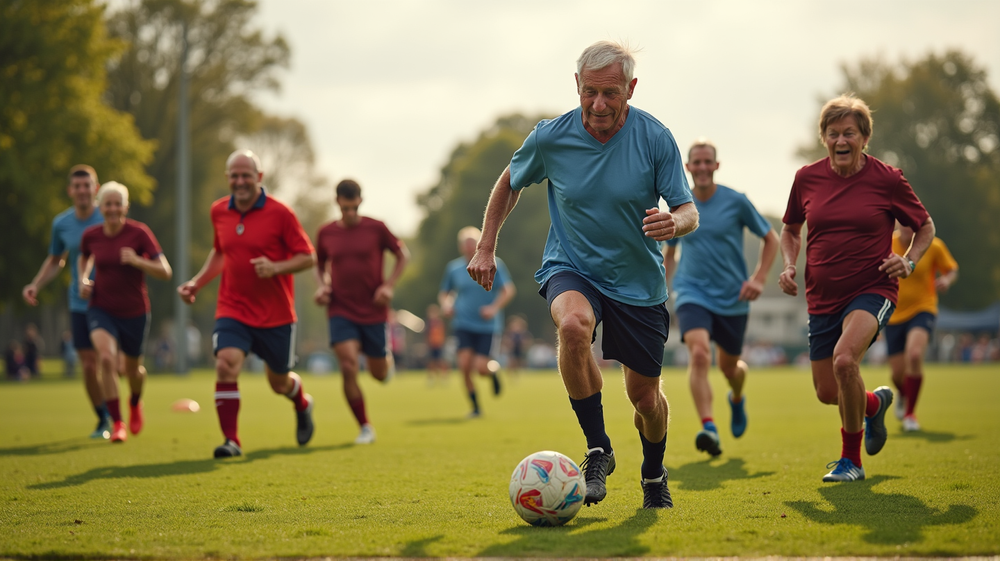England's Walking Football: A Legacy of Dreams Fulfilled
In a world where sporting prowess is often celebrated, one special story stands out, capturing heartbeats across the nation. Stuart Langworthy managed to lead England’s men’s over-60s walking football team to a phenomenal victory in the World Nations Cup, painting a picture of determination and unity.
Defending Champions in Spain
Nestled in the vibrant Spanish landscape, the tournament was not just a competition but a grand celebration of inclusivity and passion. It marked another triumph for Mr. Langworthy’s team as they successfully retained their title. “Becoming a world champion is a dream for many, and achieving it twice is just surreal,” shared Langworthy, echoing an emotional boost resonating in every athletic heart.
A Personal Journey Beyond the Field
For Langworthy, walking football came into his life after a hip replacement surgery altered his way of playing the sport he loved. More than just a participant in the game, he runs sessions for 40 enthusiasts with physical impairments in Gloucester. “When participants say that walking football has changed or even saved their lives, you feel an overwhelming sense of something truly special,” Langworthy admitted with heartfelt sincerity.
The Growing Phenomenon
Walking football has surged in popularity, with approximately 100,000 players across England engaging weekly, enjoying the blend of camaraderie and competition. The first World Nations Cup served as a testament to its growing stature, commencing at St. George’s Park in 2023. This year introduced diverse categories: men over 70, women over 40, and other vibrant segments, each embracing triumphs.
A Movement of Change
The tournament featured not only competition but friendly matches, including teams for individuals with Parkinson’s. “It’s about bringing everyone together, beyond the barriers of age and ailment,” Langworthy explained, encapsulating the sport’s spirit.
During this thrilling journey, according to BBC, walking football’s presence extends beyond victories—it symbolizes a movement, uniting diverse communities. Here’s hoping the practice continues to inspire and change countless more lives across the globe.




